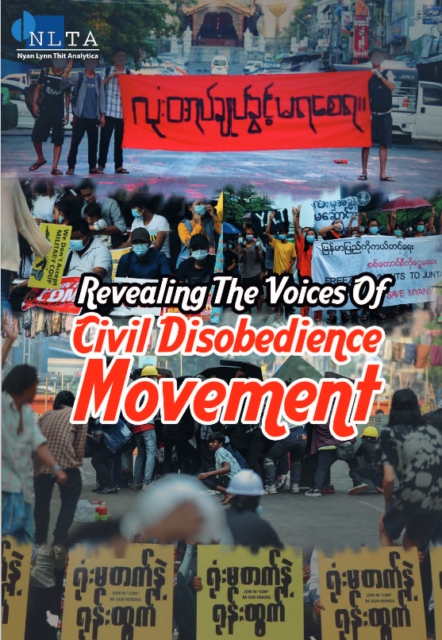Revealing the Voices of Civil Disobedience Movement


Civil Disobedience Movement (CDM) is a voluntary expression against the injustice law, government or the social norms through non-violent movement. At the start of the revolution, in 2021, the persuasions to join the CDM was strong and consecutive, encouraging people to join the movement, as people believed it is the sole factor to win the revolution. There were calls from the Committee Representing Pyidaungsu Hluttaw (CRPH), National Unity Government (NUG) and other revolutionary groups to join CDM by stating that there will be financial and tangible supports for
the GS-CDMers. With this belief, limited definitions and misconceptions about the movement came along as consequences. However, after almost 2 years of this Spring Revolution, people’s understanding of the CDM have become matured, realizing that one cannot define the other depending on their choices of whether they join CDM or not.
When defining the Civil Disobedience Movement, anyone who opposes the actions and orders of the military council, and supporting the revolution in some way, whether or not they participate in the protests or the Civil Disobedience Movement by resigning from work stations, can be considered as GS-CDMers. As they are rooting revolution in ways within their capacity, regardless of the struggles they face, they can be regarded as those who participate in the non-violence civil disobedience movement. Moreover, people like “Pha-Ye-Thee” (watermelon) are contributing to this revolution by giving intel to the revolutionary groups, the people and the respective organizations.
In our society, since the time of independence from colonial rule, there have been many vacuums from reconciliation with the ethnic groups to the nation building. The influence of one power group in social and political fields, are the results of the lack of justice and impunity that have been embedded strongly for generations.
Therefore, it is necessary to understand the importance of “transitional justice” and to realistically imply as one of the proposals of the revolution such as eradication of military dictatorship, building of the new political landscape, and the eradication of nationalism. However, not all civil servants who didn’t leave their workplaces during this Spring Revolution can be taken actions but it is important to effectively take action against those who violate human rights and commit war crimes and unlawful killings upon the civilians. In doing so, it is necessary to develop and implement transitional justice mechanisms such as robust investigations and independent judicial measures.

